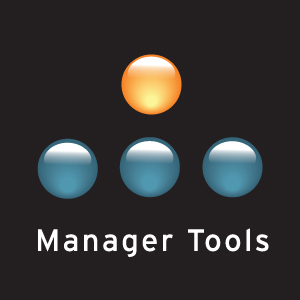Coaching Example - Interrupting (Part 1)
How to coach someone to stop interrupting, using the Manager Tools Coaching Model.

How to coach someone to stop interrupting, using the Manager Tools Coaching Model.
Our recommendations on how to communicate about logistics and schedules in advance of bringing a job candidate in for an interview. This cast is a public part of The Effective Interviewer Series of casts, which are a paid product.
This guidance continues our recommendations about topics to cover with new directs, encouraging them to be on time with themselves, their work, and their commitments.
The conclusion of our guidance on how to share shortcomings in evaluations like reviews and interviews.
This guidance explains how to share shortcomings in evaluations like reviews and interviews.
The conclusion of our guidance on how to deal with objections. This Career Tools podcast is included as a special bonus for Manager Tools Listeners.
Our guidance on how to deal with objections. This Career Tools podcast is included as a special bonus for Manager Tools Listeners.
The conclusion of our guidance on how to have a brief meeting with your team immediately after you resign.
This guidance explains how to have a brief meeting with your team immediately after you resign.
This guidance recommends asking your assertive communicators to wait to contribute, and to reinforce what you want with feedback.
The conclusion of our recommendations for how to set up the order of interviews you conduct for a day of in-person interviews of a candidate.
Our recommendations for how to set up the order of interviews you conduct for a day of in-person interviews of a candidate. This guidance is part of our Effective Interviewer Series.
This guidance recommends measuring the input proffered from quieter team members, to increase their contributions and collaboration.
This guidance recommends what questions to ask of a job candidate’s references, if you progress to that stage.
This guidance recommends what questions to ask of a job candidate’s references, if you progress to that stage.
This guidance recommends evaluating directs’ performances by the content of what they bring to their One on One with you.
The conclusion of our guidance recommending giving more positive (and then negative) feedback to a manager’s top performers, rather than trying to spread feedback out equally.
This guidance recommends giving more positive (and then negative) feedback to a manager’s top performers, rather than trying to spread feedback out equally.
The conclusion of our recommendations on professionals abandoning their belief in the myth of a just world and 'play politics'.
This guidance recommends professionals abandon their belief in the myth of a just world and "play politics".
This guidance helps managers be more collaborative by getting more input from their team members.
This guidance continues our recommendations about topics to cover with new directs, encouraging them to ask questions about everything they don’t understand.
This guidance describes how to quickly assign tasks in a project without getting bogged down in details.
This guidance describes if and how to use lists and agendas during your One on Ones.
This guidance recommends a straightforward way to diffuse tension around, and overcome, objections others have to your ideas.
Find out about the value of Manager Tools' Conferences.
The conclusion of our guidance recommending doing email three times a day. ONLY three times a day.
This guidance recommends doing email three times a day. ONLY three times a day.
This guidance recommends managers never willingly allow their boss to talk to a skip directly.
This guidance completes our discussion on how to respond to vague feedback from your boss or others.